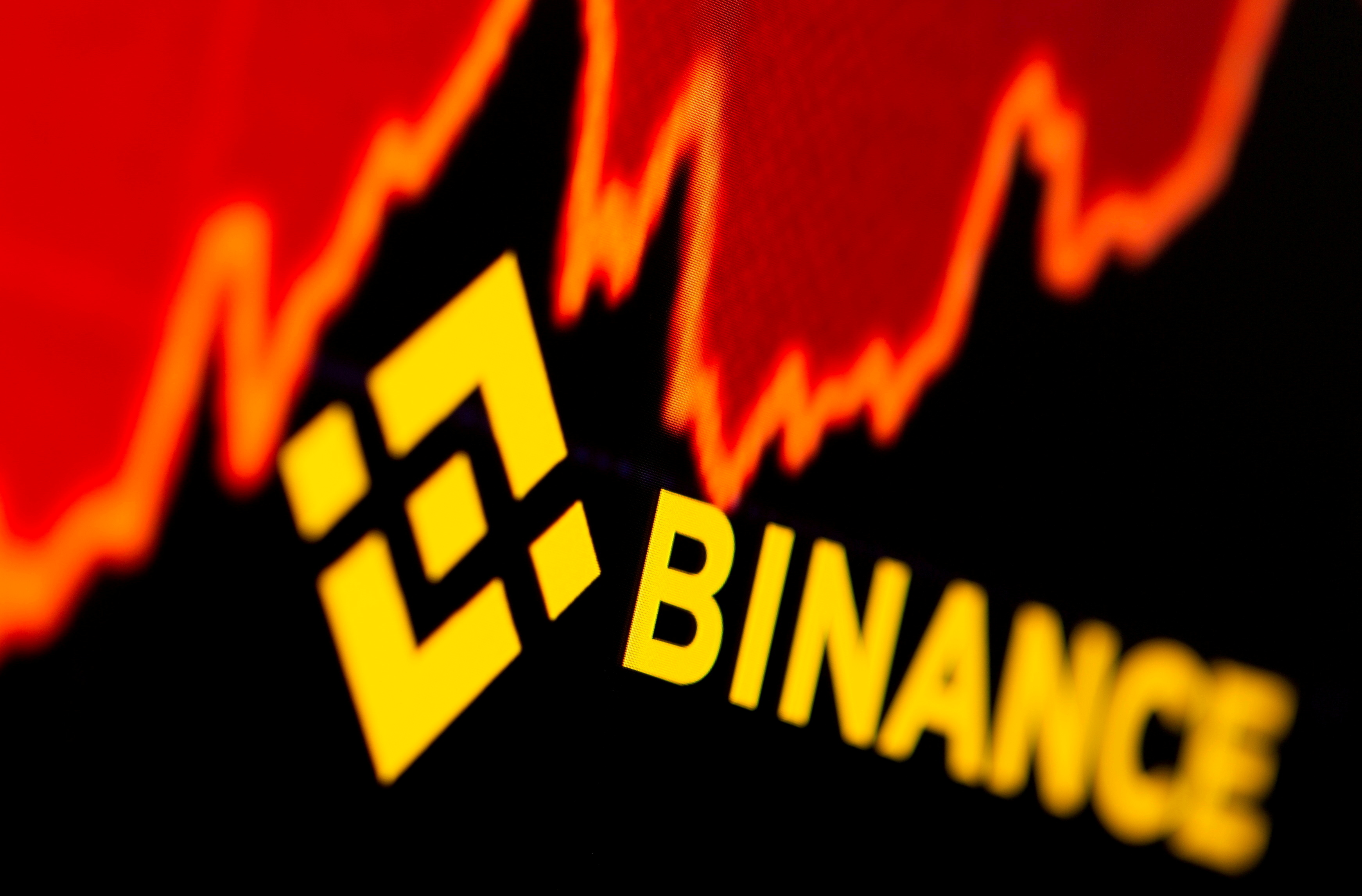Binance Singapore withdraws application for MAS licence to offer crypto payment services
Sign up now: Get ST's newsletters delivered to your inbox

Binance Asia was among some 170 firms that applied to MAS for a permit last year.
PHOTO: REUTERS
SINGAPORE - Binance Asia Services (BAS) is the latest entity to withdraw its application for a licence from the Monetary Authority of Singapore (MAS) to offer digital payment token services here.
Its parent company Binance, which runs the world's biggest cryptocurrency platform, announced the withdrawal on Monday (Dec 13) and said BAS will refocus its operations in Singapore into a blockchain innovation hub to help develop the global blockchain ecosystem.
The announcement came less than a week after queries from The Straits Times to the firm over its intention to withdraw its licence application and a Binance spokesman had dismissed it as speculation.
Responding to ST's queries on Monday, Binance said its investment in Singapore-regulated private securities exchange Hg Exchange, which was announced last week, "has made our own licence application somewhat redundant".
Said an MAS spokesman: "Binance Asia Services has provided MAS with a plan for orderly cessation of its regulated payment services. This will allow sufficient time for customers to seek alternative providers or, if they wish to, liquidate their holdings."
Binance.sg users will be required to close all open positions and withdraw their Singapore dollar and cryptocurrency assets by Feb 13, 2022, Binance said.
When asked, Binance declined to reveal how much crypto assets it currently holds or how many users in Singapore will be affected by the closure.
User Derrick Ng, 56, a manager, said that after Binance.com banned Singapore users from cryptocurrency trading, he did not transfer his crypto assets to Binance.sg, which was offered as an alternative, as the platform offers only a few types of cryptocurrency to trade in.
Another user Andy Lim, 29, said he uses Binance.sg to only buy and sell cryptocurrency in Singapore dollars and does not keep his assets with the platform.
This year, Binance has come under intense scrutiny from regulators worldwide, including in Malaysia, Britain and the United States. Some regulators were concerned that it was not doing enough to prevent money laundering and other financial crimes on its platform.
MAS, the regulator in Singapore, has also shown a firm hand to Binance for not meeting its standards. In September, it ordered Binance to stop providing payment services in Singapore and to cease soliciting business from Singapore residents, after reviewing its operations.
MAS said its approach to regulation under the Payment Services Act seeks to facilitate innovation while ensuring that adequate controls are in place to address key risks such as money laundering and terrorism financing.
Applicants are able to withdraw their applications should they see fit.
A significant number of entities have since withdrawn their applications as they were unable to meet the standards under the Payment Services Act.
It is not known if Binance Asia Services failed to meet MAS' requirements.
To date, MAS has granted the licence to provide digital payment token services to four firms, out of about 170 applications.
Ms Ow Kim Kit, partner at law firm Bird & Bird ATMD, said it is important for Singapore to have strict regulations for transactions in the virtual currency space, as virtual currency is not a regular asset class and is fairly new and anonymous in nature.
"And wherever there's anonymity, there is propensity for what we call clandestine activities," she said.
"And if you ask me, I would rather lose these players to another jurisdiction if they are not compliant," she added.
Ms Grace Chong, a regulatory legal specialist at law firm Simmons & Simmons JWS, said Singapore's licensing requirements have been in line with global developments and the city-state has taken a balanced approach to select quality players.
She added that MAS would place importance on whether it is able to achieve an adequate understanding of the whole financial group, even if MAS is just licensing a subsidiary.
"They need to have sufficient understanding of the whole group to understand the impact of any developments of the group on the subsidiary," said Ms Chong.
Mr Chia Hock Lai, co-chairman of the Blockchain Association Singapore, said he is not surprised that Binance has refocused its plans to build an innovation hub in Singapore.
"Many foreign firms are using Singapore for their hub status. It would be easier for them to get C-suite talents in Singapore," he said, referring to top senior executives.
He added: "Not everyone will get their crypto licence, but everyone can use Singapore as a business hub for other activities like research and development, incubation programmes and blockchain innovation."


